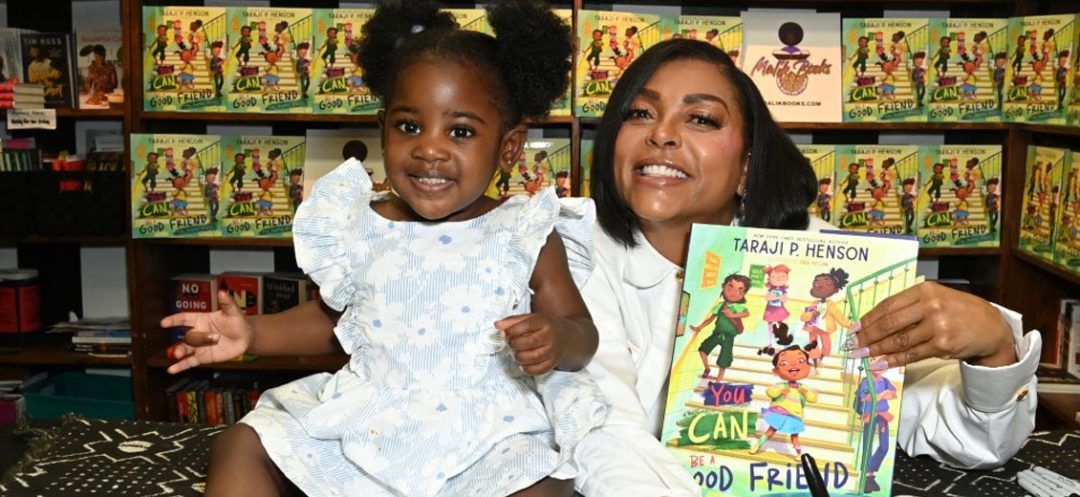
©Taraji P. Henson signs her new book “You Can Be A Good Friend (No Matter What!)” at Malik Books Bookstore California.
Photo Credit: Jon Kopaloff / Getty Images North America / Getty Images via AFP
Children's books are experiencing a renaissance worldwide, captivating young readers and fostering emotional intelligence. This surge in popularity underscores the importance of literature in early childhood development, nurturing empathy, imagination and cognitive skills from a young age.
The global market for children's books has witnessed a significant surge in recent years, with an increasing number of titles being published and consumed worldwide. This renaissance in children's literature captivates young readers and plays a crucial role in their emotional and cognitive development.
Children's books are instrumental in nurturing emotional intelligence, which is the ability to understand and manage one's own emotions and those of others. Through engaging stories and relatable characters, these books provide young readers with a safe space to explore complex emotions such as joy, sadness, anger and empathy. Psychologists and educators emphasize that early exposure to stories that tackle a range of emotions helps children develop better emotional regulation and social skills. When children see characters navigating challenges, expressing feelings and finding solutions, they learn to mirror these behaviors in their own lives. Books like The Feelings Book by Todd Parr and Inside Out by Disney Pixar are great examples of literature that addresses emotions in an accessible and engaging manner.
[gallery size="full" ids="266451,266452,266453"]
Reading from an early age has numerous benefits that extend beyond emotional intelligence. Research indicates that early literacy experiences contribute significantly to a child's academic success. Children who are regularly read to develop stronger language skills, a richer vocabulary and better comprehension abilities. Furthermore, reading stimulates cognitive development by enhancing concentration, improving memory and fostering analytical thinking. Picture books, with their vivid illustrations and engaging narratives, play a critical role in this developmental stage, as they help children make connections between words and images, thereby boosting their visual and verbal understanding.
Moreover, literature is a powerful tool for nurturing children's imagination. Stories transport young readers to fantastical worlds, introducing them to diverse cultures, mythical creatures and extraordinary adventures. This creative exploration is essential for cognitive growth, as it encourages creativity, problem-solving skills and the ability to think abstractly. Books like Where the Wild Things Are by Maurice Sendak and the Harry Potter series by J.K. Rowling have long captivated the imaginations of children worldwide. These stories allow children to dream beyond the confines of their immediate reality, fostering a sense of wonder and curiosity.
The rise of children's books on a global scale also highlights the universal appeal and importance of storytelling. Publishers are increasingly focusing on diverse and inclusive narratives that reflect the experiences of children from different backgrounds. This inclusivity broadens young readers' perspectives and develops a sense of belonging and acceptance.
Besides, the availability of children's books in various languages and formats, including e-books and audiobooks, has made literature more accessible to children everywhere. This accessibility ensures that children, regardless of their circumstances, can benefit from the joys and advantages of reading.
Read more



Comments